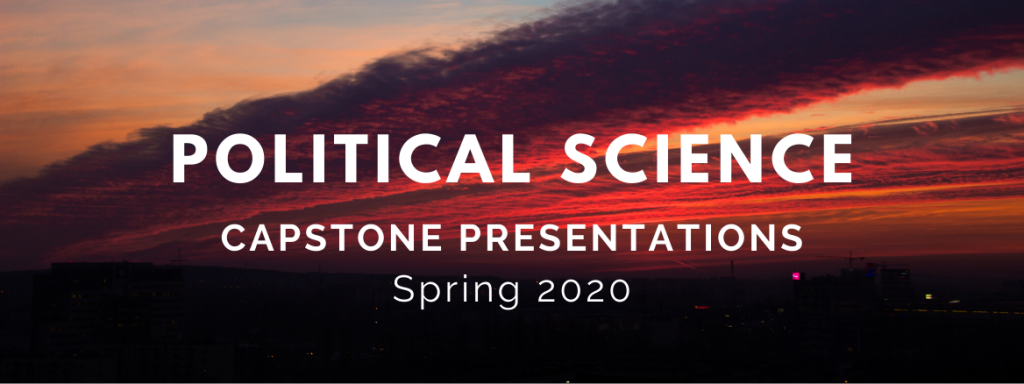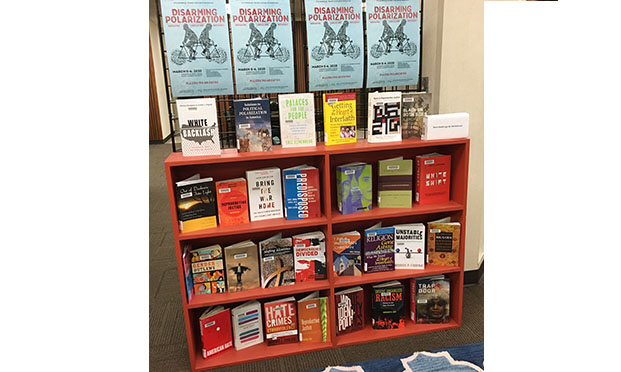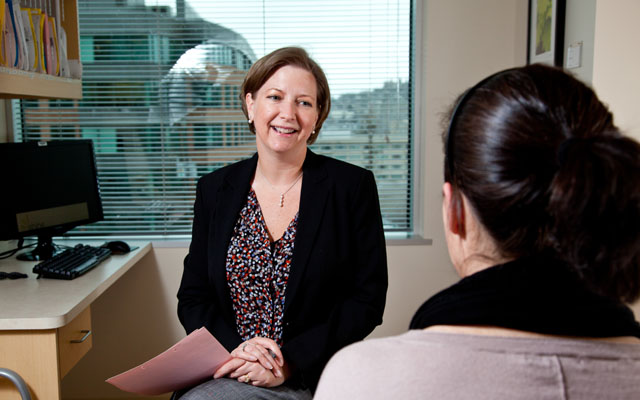Page 60 • (3,707 results in 0.021 seconds)
-
Saturday, Feb. 16, 2019 I 9 a.m. to 3 p.m. I Christ Episcopal ChurchThe deep bays of the Puget Sound, the rain that greens the land, many rivers, creeks and aquifers that flow into our homes and churches: we know well our local waters. We also know that continued pollution, climate change, threatened species, and water privatization spell trouble for the flowing of this free gift from the Creator. In this conference, we explore water – the one thing upon which all life depends – and Christian
-

Jonathan AcevedoJonna Lynn BakerJasper CantrellKatya CervantesNikolis ClarkKarla EickhoffMegan FinleyAlex GasperiBarbara GilchristDeanna HobbsJonathan Acevedo``Voting Habits of College Age Students``PresentationJonna Lynn Baker``Women's Suffrage and Institutional Changes``PresentationJasper Cantrell``Climate Changing Attitudes``PresentationKatya Cervantes``Containing Contagion: The Politicization of Pandemics Using IR Theory``PresentationNikolis Clark``A Digital Bellwether``PresentationKarla
-

On Exhibit: Books in Support of Disarming Polarization Symposium Posted by: Holly Senn / February 4, 2020 February 4, 2020 This exhibit, displayed in a living room setting in the Library lobby, is made up of reading materials from the Library’s collection. Books highlight political and societal polarization, and the inability to communicate and collaborate, as it relates to problems such as climate change, food and water insecurity, immigration, poverty, and income inequality, as well as
-
: Pacific Rim Nations Face the Climate Crisis. Corvallis: Oregon State Univ. Press, 2012. 37-40: 40. (2) Wilson, Shawn. Research Is Ceremony: Indigenous Research Methods. Halifax: Fernwood, 2008. 80-96. (3) Wilson: 86 (4) Kappfjell, Lena. “Tradition, Value, Habit.” Presentation given at University of Tromsø (Norway) 1 March 2012. (5) Scheurich, James Joseph and Michelle D. Young. “White Racism among White Faculty: From Critical Understanding to Antiracist Activism.” In William A. Smith, Philip G
-

the International Organization for Migration, a United Nations advisory agency that promotes international cooperation on migration.Traveling under a Wang Center Research Grant, Jackie worked with agency representatives to locate a dataset on Iraqi migration from a survey about access to basic needs such as water and shelter. “It’s really hard for people to look at a giant dataset and identify the main takeaways,” Lindstrom said. “So I was just excited to be able to serve this organization and
-
for the core curriculum. Objective 1.2: Students achieve the learning outcomes of their undergraduate majors and graduate degrees. Objective 1.3: Undergraduate and graduate students will engage in one or more high impact practices. Theme Two: A Community of Care Objective 2.1: Equitable outcomes for students are achieved through the on-going examination of, and response to, the differential impacts of systems, policies, structures, and climate. Objective 2.2: Strengthen and support the safety
-
Tacoma, Washington. Tacoma is Washington state’s third-largest city, with more than 200,000 residents. PLU is approximately a 40 minute drive from Washington state’s largest city, Seattle and a 30 minute drive from the state capital, Olympia. The climate is relatively mild and snowfall in town is rare. Admission criteria for International students Overall grade of 80%-B or higher is highly recommended. (70%-C or higher will be considered). Language requirements for Norwegian students TOEFL iBT 79
-
is in small groups with maximum individual feedback from your professor. Classes With Only First-Year Students: Build confidence by making the transition to college-level study with your peers. Compelling Course Themes: You’ll learn the crucial skills of thinking, speaking and writing by applying them to a thought-provoking topic. All First-Year Writing and DJS seminars are focused on important and compelling themes – like “The Art of Living,” “Banned Books,” “Climate Justice and Resilience,” and
-

March 29, 2012 Photo by John Froschauer Dr. Jennifer Specht ’94 A passion for research and the needs of her patients By Barbara Clements It comes down to a series of small steps, fleeting encounters, or choices that may not seem significant at the time, but in the view of hindsight, they become key compass points that lead to one’s calling. That is the way that Dr. Jennifer Specht ’94 sees it. Specht is an assistant professor in the Division of Medical Oncology at the University of Washington
-
Steps to BIRTWhat is BIRT?What is BIRT?The purpose of the Bias Incident Response Team (BIRT) is to anonymously collect data regarding instances of experienced bias within the PLU community and monitor the type and frequency of such occurrences. Doing so will help us better understand our campus climate, create community-based educational opportunities to address noted trends in such occurrences, and foster an environment where everyone feels welcome. The BIRT does not adjudicate violations of
Do you have any feedback for us? If so, feel free to use our Feedback Form.


